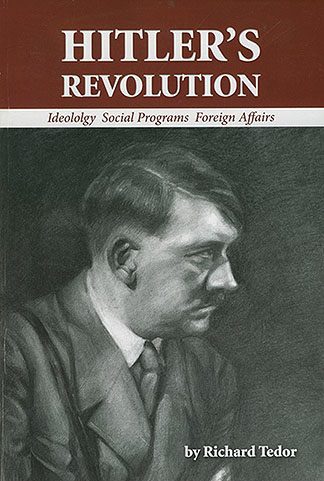By Richard Tedor. Liberal democracy’s deadliest enemy, Adolf Hitler transformed Germany into an authoritarian, national socialist state advocating sovereignty of nations, advancement of labor, preservation of the white race and commerce based on exchange of wares to replace the international gold standard.
Becoming chancellor in 1933, Hitler tackled his nation’s bankruptcy, massive unemployment, Communist subversion and foreign domination.
His social economic programs and diplomacy restored German prosperity and independence in three short years, despite fanatical opposition from Western democratic leaders. Penetrating the shroud of vilification draping this controversial figure, Hitler’s Revolution draws on German sources, many from the National Socialist era, to describe not only what Hitler did, but why.
The book also reveals democracy’s genuine war aims, a taboo subject for mainstream historians, in the ensuing global conflict that destroyed the German revolution. Challenging the court historians’ version of the period, Hitler’s Revolution is the book for the student of history who senses something is missing from the historical record and seeks the answers.
Author Tedor has succeeded in writing a book on the greatest man of the 20th century that is both refreshing and full of surprises even for the seasoned student of Hitler.

